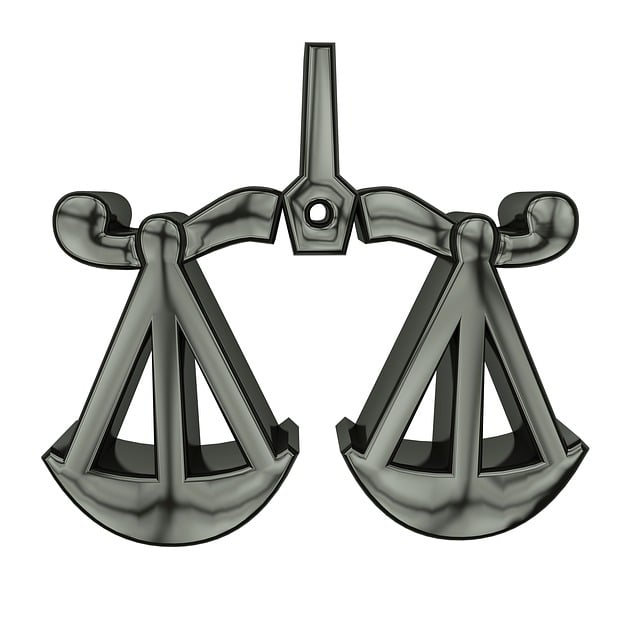Consumer Protection Litigation poses significant legal challenges for healthcare compliance experts, who safeguard patient rights and organizational integrity. This field involves suing businesses for misrepresentations, false advertising, and data privacy breaches. Organizations defend against such claims by demonstrating accurate disclosures, industry standard adherence, and robust internal controls. Key risk mitigation strategies include staying updated with consumer protection laws, implementing strong compliance systems, and engaging specialized legal counsel. Healthcare Compliance Experts play a crucial role in preventing violations, navigating legal complexities, and fostering trust through ethical practices. By adopting proactive measures like regular audits, staff training, and advanced data management technology, organizations can build strong defenses against common consumer protection litigation tactics while adhering to evolving regulations.
Healthcare Compliance Experts play a pivotal role in mitigating risks associated with consumer protection litigation. As legal landscapes evolve, so do the strategies employed by these experts to defend healthcare organizations against allegations. This article delves into the intricate world of consumer protection litigation, focusing on common defenses and the evolving role of compliance professionals. We’ll explore key tactics, successful case studies, and best practices for continuous compliance, highlighting the essential contributions of these experts in navigating legal complexities.
- Understanding Consumer Protection Litigation: A Overview of Common Allegations
- The Role of Healthcare Compliance Experts in Risk Mitigation
- Key Strategies for Defending Against Consumer Protection Claims
- Case Studies: Successful Defense Tactics Employed by Compliance Experts
- Best Practices for Continuous Compliance and Potential Future Trends
Understanding Consumer Protection Litigation: A Overview of Common Allegations

Consumer Protection Litigation involves legal actions taken against businesses for alleged violations of consumer rights and unfair business practices. A thorough understanding of this landscape is crucial for healthcare compliance experts navigating complex regulatory environments. Common allegations include misrepresentations, false advertising, price gouging, and non-compliance with data privacy laws. These cases often center around issues like inaccurate or misleading marketing claims, failure to disclose material information, and breaches of consumer trust.
While each case is unique, several common defenses emerge. Businesses often argue that their actions were not deceptive and that they provided accurate, transparent information. They may also assert that regulatory guidelines were interpreted incorrectly or that the respective business practices are industry standards. An unprecedented track record of successful compliance and a proactive approach to avoiding indictment can significantly bolster these defenses. Ultimately, staying ahead of evolving consumer protection laws and maintaining robust internal controls are key strategies for mitigating risks in this realm.
The Role of Healthcare Compliance Experts in Risk Mitigation

Healthcare Compliance Experts play a pivotal role in risk mitigation, acting as guardians of regulatory adherence and patient safety. Their expertise is crucial in navigating the complex landscape of healthcare laws and standards, which are designed to protect patients and ensure ethical practices. These professionals implement robust systems and policies to safeguard against potential violations that could lead to costly legal battles and damage to a respective business’s reputation.
By focusing on proactive measures, they develop common defenses in consumer protection litigation, thereby minimizing the risk of jury trials. Through rigorous training and an in-depth understanding of industry trends, these experts can anticipate potential pitfalls and implement strategies to achieve extraordinary results. Their work ensures that healthcare organizations operate within legal boundaries, fostering a culture of compliance that is essential for sustained success and patient trust.
Key Strategies for Defending Against Consumer Protection Claims

In the realm of healthcare compliance, defending against consumer protection claims is a multifaceted strategy that involves a deep understanding of legal intricacies and industry-specific regulations. Healthcare organizations often face allegations related to billing practices, patient records management, and marketing claims, among others. A robust defense strategy can mitigate risks and protect the reputation of these institutions. Common defenses in consumer protection litigation for healthcare providers include challenging the validity of evidence, disputing factual assertions, and invoking regulatory exemptions that apply to their operations.
Proactive measures such as implementing stringent internal controls, employee training on compliance matters, and regular audits can serve as powerful deterrents against consumer protection claims. Additionally, leveraging the expertise of white collar defense attorneys who specialize in healthcare law is invaluable. These professionals can navigate complex legal landscapes, uncover weaknesses in plaintiff arguments, and develop strategies that not only defend against current allegations but also fortify defenses for future potential claims. This proactive approach, coupled with a commitment to ethical business practices within philanthropic and political communities, fosters trust and ensures the longevity of healthcare organizations.
Case Studies: Successful Defense Tactics Employed by Compliance Experts

In the realm of healthcare compliance, experts often find themselves at the center of complex legal battles, particularly in Consumer Protection Litigation. These cases present unique challenges, but through strategic navigation and a deep understanding of regulatory landscapes, compliance specialists have successfully defended organizations against significant penalties and reputational damage. Case studies reveal several common defense tactics employed by these professionals, including detailed protocol reviews that demonstrate adherence to industry standards and regulatory requirements, especially in the context of white collar and economic crimes.
By analyzing past successes, compliance experts can devise robust strategies tailored to individual clients’ needs. They often emphasize the importance of comprehensive training programs for staff, ensuring everyone understands their roles and responsibilities within the organization. This proactive approach not only mitigates risks but also showcases a commitment to ethical business practices across the country, fostering trust among corporate and individual clients alike.
Best Practices for Continuous Compliance and Potential Future Trends

To ensure continuous compliance, healthcare organizations must adopt a proactive approach that combines robust internal controls with regular audits and training. Best practices include implementing comprehensive policy manuals, utilizing technology to automate data management tasks, and fostering a culture of ethical conduct. Regular reviews of regulatory changes and industry best practices are essential to stay ahead of evolving requirements. Additionally, conducting mock inspections and providing ongoing compliance updates can help identify gaps and strengthen defenses against potential Common Defenses in Consumer Protection Litigation.
Looking towards the future, several trends suggest new challenges and opportunities for healthcare compliance experts. The increasing emphasis on data privacy and cybersecurity requires sophisticated strategies to protect sensitive patient information. As white-collar and economic crimes become more sophisticated, so must the methods used to detect and prevent them. Organizations with an unprecedented track record of achieving extraordinary results in compliance are likely to be well-positioned to navigate these developments, setting new standards for ethical conduct and regulatory adherence.
Healthcare compliance experts play a pivotal role in defending organizations against consumer protection litigation, especially with the ever-evolving regulatory landscape. By leveraging their knowledge and implementing effective strategies, such as staying informed on common defenses (e.g., lack of evidence, procedural errors) and adopting best practices for continuous compliance, these professionals can significantly mitigate risks. The case studies presented highlight successful defense tactics that have set precedents in the industry. Looking ahead, staying proactive and adaptable will be crucial to navigating future trends in consumer protection litigation, ensuring healthcare organizations maintain the highest standards of ethical conduct and patient safety.






